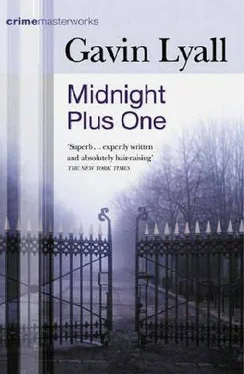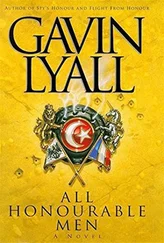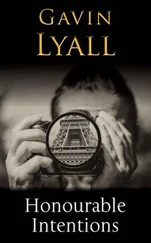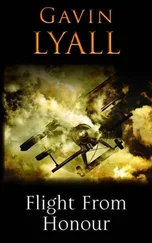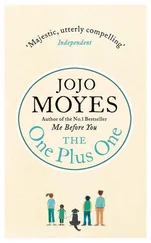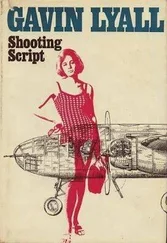After a few moments he said: 'Maybe… and maybe if I hadn't got hit--Probably not, though.' Then he turned his head and looked at me. 'You said something back there: that I wasn't basically different from anybody else. I kill people, Professor.'
'You could give it up.'
He smiled very slowly and wearily. 'But not until after tomorrow – is that right?'
After a few more moments, I went out. I felt as noble and helpful as the spilled dregs on the carpet.
Maganhard and Ginette were standing at the top of the stairs looking as if they'd been trying to find something polite to say to each other but not getting far. Maganhard swung round as I came along and forgot about politeness.
'You didn't tell me Mr Lovell was a drinker.'
'I didn't know myself until after we'd started.' I leant against the bannisters and reached for a cigarette.
'Then I will speak to Merlin about this. I could have been killed just because-'
'Shut up, Maganhard,' I said wearily. 'We've lived through yesterday and today, and if you don't think that's an achievement, then you didn't know what was going on. We couldn't have done more with anybody else. Now go to bed.'
'I have not had my dinner yet,' he said huffily. He had Austrian blood in him, all right.
Ginette said soothingly: 'Maurice will serve you very soon, Herr Maganhard: He will give you a drink now, if you wish.'
He gave me a stare that he'd been keeping at the back of the freezer compartment, then marched downstairs, his back very straight.
I stayed leaning on the bannisters, found my matches, and lit the cigarette. 'I'd forgotten dinner. I thought today had gone on long enough already.'
'Is that the way the Agency Cane usually treats its clients?'
'Pretty usual. I told you I didn't have to like them.'
'I think you had better take the work here – quickly.'
I looked at her, but she didn't meet it. She just propped herself against the bannisters beside me; the movement brought her hands up in front of her, and she seemed to notice that she still had the Mauser.
She looked it over. 'Do you remember, Louis, what these once meant to us? Liberation… freedom… words like that?'
'I remember.'
'Perhaps things have changed since then.' She sighted the gun casually down the stairway, her thumb sweeping instinctively over the safety catch and the single/automatic button. She knew about Mausers.
'Pistols haven't changed.'
'You believe the Resistance was always just pistols – not the words?'
'Nothing is ever just pistols; men don't die by guns alone. Guns always need words behind them, telling them they're doing the right thing.'
She glanced quickly at me. Maybe I'd sounded a little sour; maybe Iwas a little sour, thinking of riding north at midnight and the state Harvey would be in then. And perhaps wishing it wasn't all just to save a man like Maganhard from a few deaths, a few taxes.
Or maybe I was just feeling old and tired.
'In the war,' she said thoughtfully, 'we never asked if we were right. The answer was too easy. But – perhaps sometimes we were wrong. We helped make men like Bernard, and Alain.' She lowered the gun. 'You believe because your Maganhard is right, you must be right? '
I said cautiously: 'Something like that.'
But she just nodded to herself. After a while she said: 'But perhaps your next Maganhard will be wrong – and you will not have stepped aside.'
It wasn't a new idea; it was an old familiar ghost at the back of my mind, that I remembered only when I was feeling tired and low. On the nights when you dream of the faces of men you knew and who are dead.
I'd been right about Maganhard. I'd trusted Merlin and Maganhard himself and my own judgement – and I'd been right. But one day, I could be wrong. One day I'd have a client as crooked as a mountain road and the men jumping up in ambush would be plain-clothes cops…
A lawyer can say his client deceived him. But I'd be standing there with the Mauser warm in my hand.
I shook my head wearily. 'Maybe, Ginette. But not this time. And next time is next time.'
'There is going to be a next time?' She was watching me with her steady sad eyes, with the glint of lamplight on her chestnut hair, like the sheen of old, polished wood.
'Ginette – it's fifteen years. You aren't in love with me.'
'I do not know,' she said simply. 'All I can do is remember, and wait – and perhaps make sure you do not get killed.'
'I'm not going to get-' I knew it was the wrong thing as soon as I'd said it.
But she said: 'No – tell me it won't happen. That it can't, not to you, not to Caneton.' And her fight was over. If I was going on, then she wanted to believe it could never happen to me; that if there had to be dragons, there would never be a last one. She wanted to think like a gunman -again. And forget that she had believed it before – and been wrong.
I winced. I should never have come back. Fifteen years I'd stayed away from this quiet house where she had tried, so hard, to find an end to war. And when I'd come back, it had only been because I was still at war.
'You can't be sure,' I said slowly. 'In the end, it depends on me.'
'I know.' She nodded and smiled gently. 'I remember.'
There were footsteps on the stairs. Maurice was walking carefully up, carrying a loaded tray, including a bottle in a wicker cradle.
I said: 'Harvey won't want anything. He's probably asleep already.'
She straightened up from the bannisters, moving with the lazy grace of a cat. 'I told Maurice you and I would have dinner in my room.'
I stared at her, then opened my mouth. She shook her head. The argument is over, Louis. You are going on; I understand. That is all.'
There were a thousand reasons why not – but suddenly I couldn't remember any of them. Only that I'd been away so long.
'I'll come back,' I said thickly.
She smiled her half-sad smile. 'Don't promise anything, Louis. I am not asking for promises.'
She walked down the corridor after Maurice. After a moment I followed.
We headed north on the N92. We were in the same Citroen delivery van, with Ginette and I sharing the driving. And a stack of crated bottles across the back of the van to block anybody's view of the other three passengers if the rear doors were opened.
We'd practically had to pour Harvey aboard. He'd been in a deep, drugged sleep, and by now was probably in it again; we'd dumped a couple of old mattresses and a few blankets in there. But I'd guessed Maganhard wasn't asleep even before he stuck his little iron voice out of the window behind my neck.
'How are we entering Switzerland, Mr Cane?'
'We are going up to near a place called Gex, just a few miles northwest of Geneva. We'll drop off there and just walk across near the airport.'
He tasted this and – as I'd expected – didn't much like it. 'I understand we must arrive in a big town where we can hire a car, but why not go to Evian and cross the lake by boat to Lausanne?'
'Because that's exactly the sort of tricky thing they'd expect us to do. The Geneva frontier's what we want: it's almost impossible to guard. There's about twenty different roads going across, and most of the frontier's farmland. We'll just walk through.'
'It must have been guarded in the war,' he objected.
'Sure, but even then you'd be surprised at the number who got across. The Swiss kept a big internment camp up there, all ready for them.'
'Mr Cane,' he said coldly, 'if we arrive in a Swiss jail, it will not be any better than being in a French jail.'
'Probably a lot cleaner. But I'm hoping the Swiss police won't be looking for us: they can't do anything until the French ask for it – and the French may not want to admit they might have missed us. Not just yet.'
Читать дальше
